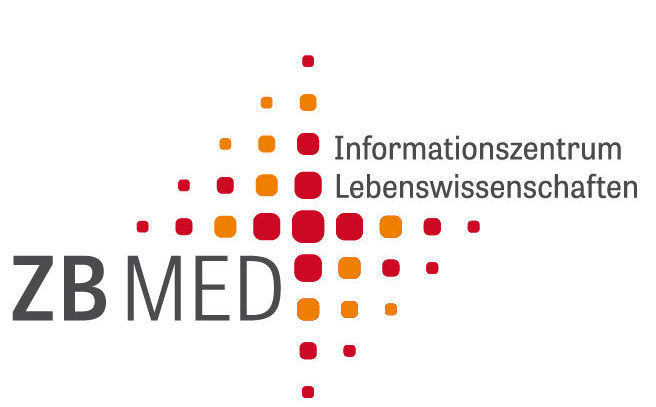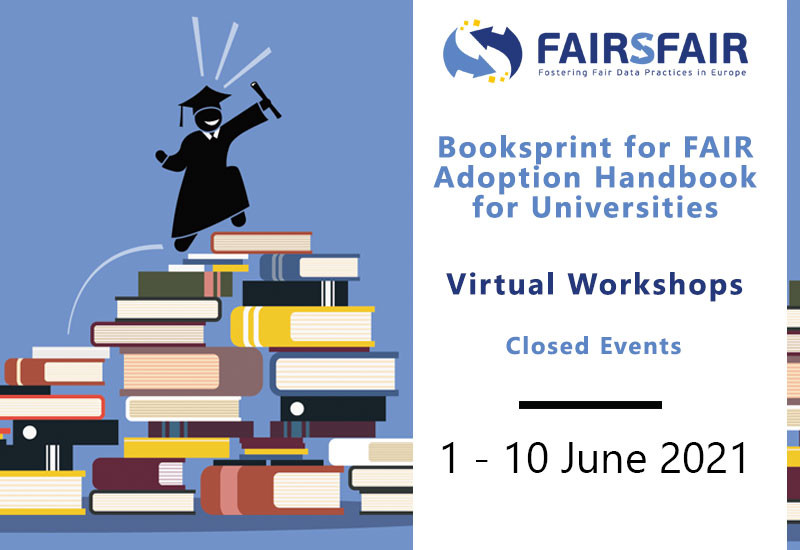written by Justine Vandendorpe:
In April 2021, I applied and was then accepted to join a book sprint to write a FAIR adoption handbook for universities. This event took place at the beginning of June 2021, and was organised by FAIRsFAIR. FAIRsFAIR “Fostering FAIR Data Practices in Europe” is a EU project, and one of its aims is to support the integration of FAIR content into the curricula of Higher Education Institutions (HEIs).
FAIR stands for Findable, Accessible, Interoperable and Reusable, and it forms a set of principles meant to help researchers make their data reusable. Specifically, the FAIR principles aim at (1) improving the infrastructure supporting the reuse of research data, (2) enhancing the ability of machines to automatically find and use data and (3) supporting the reuse of data by individuals. The FAIR principles are an important component of my work as I encounter them in my daily tasks, such as NFDI-related activities, or when training life-science researchers in Research Data Management (RDM).
A book sprint is a 3 to 5-day process for writing a book collaboratively. This book sprint was joined by participants from the Digital Curation Centre, publishing companies (e.g. Elsevier), scientific associations (e.g. the American Geophysical Union), universities (e.g. University College Cork), research institutes (e.g. The Alan Turing Institute), infrastructures (e.g. Australian Research Data Commons) and councils (e.g. the National Research Council Canada). This diverse community met online for a kick-off meeting, four sprint sessions and a wrap-up. During the kick-off, we got to know each other, learned what the cities we were each located in are famous for (I, of course, mentioned the Cologne Carnival!), and discussed the book content and structure. During the sprint sessions, we worked in break-out rooms, each corresponding to a specific chapter of the book. Finally, during the wrap-up, we discussed how to proceed to be able to submit the final draft to the European Commission at the end of the year.
As stated by FAIRsFAIR [1], the book sprint stood as a start point to solve the following challenges: (1) what does implementing the FAIR principles in HEIs mean in practice? (2) How can it be rolled out on the ground among researchers and students? (3) What are the expectations of doing this in a diverse multi-disciplinary environment?
During the book sprint, we examined and reviewed already-existing materials, and developed model curricula, courses and learning units for different career stages and from different perspectives (discipline-agnostic or -specific). For instance, a lesson plan on dealing with sensitive data was created during the sprint. The sprint resulted in the draft of the FAIR adoption handbook, which currently contains 11 chapters. The core chapters are “Learning outcomes”, “FAIR-enabling practices”, “A guide to course design for trainers”, “Implementing FAIR” and “Domain-specific use cases” (N.B. these are working titles).
Ultimately, the handbook aims at helping HEIs teach researchers how to make their data FAIR, and thus reusable. As I train life-science researchers in RDM, I was able to contribute to this handbook with my own expertise. During the sprint, I worked with 16 other motivated trainers on the chapter “FAIR-enabling practices”. This chapter includes examples of lesson plans such as “Introduction to the FAIR principles”, “Data Management Plans (DMPs)”, “Metadata”, “Persistent identifiers” and “Repositories”. My main task was to write a lesson plan about FAIR software. The objectives of this lesson are to (1) define research software, (2) identify accepted best practices and (3) identify the limits of the FAIR principles with regard to their application to research software. After the book sprint, Jenny Ostrop (from the University of Bergen) also contributed to this lesson plan.
Not only could I contribute to this handbook with my own expertise, but it will also help me and my colleagues in the future. Indeed, together with the local RDM units of German universities with life-science faculties, we offer introductory workshops on RDM. We are responsible for the discipline-specific sections of these workshops and in this context the handbook drafted during this book sprint will certainly prove useful (e.g. the chapter „Domain-specific use cases“).
- More Information: Booksprint for FAIR Adoption Handbook for Universities
© Bild: FAIRsFAIR “Fostering FAIR Data Practices In Europe”
DOI (Digitalausgabe): https://doi.org/10.48664/h3gz-ct93




